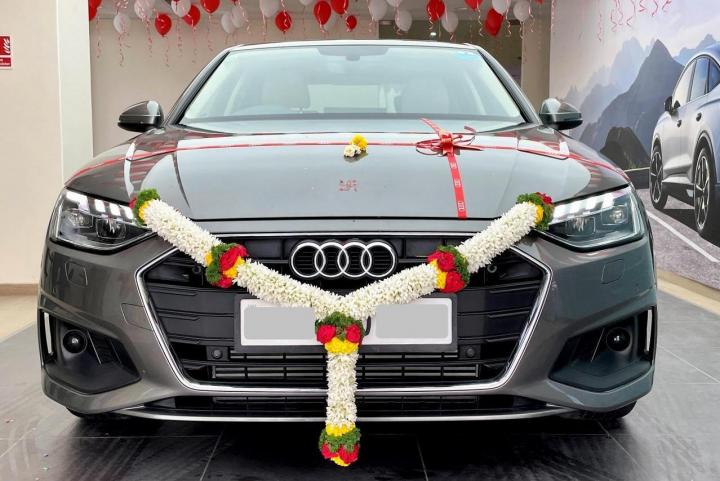News
Inflation in India: Are cars cheaper or costlier to buy now than before
In today's car market, there are still many good vehicles which are value for money. But car companies are charging extra in the name of various fancy or so-called essential features.
BHPian aniketi recently shared this with other enthusiasts:
Are cars costly now? Obviously, all will say Yes! But what is the reality? Are cars really costly nowadays? What if I say cars are actually cheaper now? Will you agree with me? I am sure you will say NO. Okay, let's find it out.
When we say something is costly, we definitely need to compare its price for the last few years then only we can say that yes, it's costly now. This is the simple method which has been followed for years everywhere in the world. For example, if something was costing Rs. 100 three years back and now it is at Rs. 150, we can safely say it has become costly now even after considering standard inflation here. Most of the things are affected by inflation and that is the main reason why things become pricey every year by some amount. Real estate prices, fuel prices, grocery prices, vegetables and fruit prices, etc. are the basic parameters responsible for inflation.
Coming back to cars now. People keep saying cars are very costly now, after GST they have become very costly, etc. But what is the reality here? Let's check it out.
Example 1
Maruti Zen was launched somewhere around 1997 and from what I remember it was costing around 4 Lakhs OTR in the year 2000 (Correct me if I am wrong). When I purchased Ignis Zeta last year in July 2023, it cost me 7.9 Lakhs OTR. Now if I compare features here, Ignis has loads of more features like 2 airbags, ABS with EBD, Hill assist, Keyless entry, Alloy wheels, Spoiler, Roof rails, Infotainment system with Android Auto and Apple Car Play, Steering mounted controls, Electrically operated mirrors, fog lamps, rear wiper & few more. On top of that my Ignis is automatic (AMT).
Also, Ignis has a much better, refined BS6 engine (1.2 L against 1.0 L Zen had at that time) with more power and fuel efficiency. So ideally if we see prices of Zen in the year 2000, similar Ignis should have cost me at least 12-14 Lakhs today considering all the features I got and 23 years of Inflation. But I got it for just under 8 Lakhs which is very cheap if I consider car prices in 2000.
Example 2
Maruti Esteem was costing around 7 Lakhs OTR in the year 2000 and now after 24 years, one can purchase Maruti Ciaz at around 12-13 Lakhs OTR with loads of more features, more space, better engine and what not. Considering inflation and other parameters, it should have cost 20+ Lakhs but in reality, you are getting it for a much lower price. Same for Honda City as well.
Example 3
Let's take one example of a bike now. I purchased a Bajaj Caliber 110 cc bike in 1998 for 65K OTR. It was a very nice bike and I used it for more than 1 lakh kms. If I want to purchase a 110 cc bike today from Bajaj, Honda or TVS, it will cost around 1 Lakh only after a whopping 26 years!! Isn't it crazy? Definitely yes. Looks like inflation has very very less impact on bike prices. Again today bikes have better engines and better tech along with some nice features which were not present before. So I can safely say that we are getting bikes at a very attractive, good price even after 25 years.
Now I will add more fun to the discussion. In today's world middle class is earning much better than before, say 15-20 years back. If I take an example of my own, when I started my job in July 2000 my salary was 70K per annum (yes, you read it right, it was recession time and I was in the mechanical field), which is approximately 5K per month in hand. So buying a car worth Rs. 4 Lakhs is like spending more than your full 5+ years of income.
Now in 2024, my income is 25+ Lakhs and buying a car worth 8-10 lakhs is just spending of my 4-5 months salary. That is the reason we see so many cars pouring on our streets every day. People have much better purchasing power now and spending on cars is not that big amount for them, that's the reality. People think cars are costly mainly because they want big, powerful cars with many fancy features which they might never use or hardly use in day-to-day life or without which they can easily live with.
When I see today's car market closely, there are still many good cars which are value for money. But car companies are looting people in the name of various fancy or so-called essential features. One can easily live without features like wireless charging, ventilated seats, auto wipers or lights, sunroofs moonroofs, mood lighting and whatnot. If you see cars like Creta, it starts from 13-14 Lakhs OTR and goes to 25-26 Lakhs which is insane.
So people are paying extra amounts just for fancy features as the main car is the same with all safety features. Same happens with many other cars. Companies like Toyota just looting people due to lack of competition in those particular segments. Cars from German manufacturers are costly on the name of safety and brand name. They are just looting people when people purchase new cars and then in servicing as well for years to come.
Lastly, I just want to say that go for a car purchase with your eyes open and see what features you really need. There will always be good VFM cars available in the market.
Happy driving.
Here's what BHPian SmartCat had to say about the matter:
Reason for this unusual phenomenon is Economies of Scale.
As sales go up, the manufacturer is able to push the cost down, as parts/component prices are lower. It also helps that employee/worker salaries are typically just 5% of overall revenues for Indian automobile companies. So salary inflation does not negatively affect automobile companies that much.
In the year 2000, sales of passenger cars were around 40,000 per month. Now, it is 10x more. In the year 2000, bike sales were approximately 450,000 units per month. And now it is 1.8 million per month . That is 4x more. Economies of scale gains for two wheelers is far lower than that of cars, since year 2000 sales were quite high to being with.
Of course, car/bike price is still higher than what it was in year 2000, but is significantly lower than inflation rate. Also, manufacturers equip cars with lots of features, since that's what the customers wants.
Here's what BHPian gupta_chd had to say about the matter:
Although I concur with your views but sorry to pinpoint, I guess old car prices mentioned by you are on higher side for the year 2000.
- I purchased Zen LXi in Nov 2003, and it did cost me about 3.45 lakh OTR. It was a facelift just launched with increased prices and without a penny of discount.
- My friend bought Maruti Esteem in 2004 as I recall, don't exactly remember the variant but it did cost him about 5.2 lakh OTR.
The absolute prices of these cars in year 2000 should have been even lower by 10-15% going by the trend.
Here's what BHPian anandhsub had to say about the matter:
The Indian Statistics office publishes an Inflation rate for car prices. It has averaged 4.5% YoY since 2015. (This does have some quality adjustments as well).
Just to compare the overall inflation rate has been ~5% since Jan 2015
So, car prices haven't gone up at the same pace as inflation, but can't say they are much cheaper as well.
Here's what BHPian AJ56 had to say about the matter:
Cars are much cheaper now, our economy has inflated at roughly 6.5% (average) over the past 20 years. Car prices haven’t increased by 6.5% year over year, making them much cheaper.
For eg. Our Honda City was 8L on road back in 2002, 22 years ago. At 6.5% the present value of that money is 32L. Whereas the same City is only 18.29L on road today. It’s nearly half of what it cost back then.
Take another mass market example, the Camry Hybrid was 36L on road back in 2015, 9.5 years ago. Today the same car is 52L (let alone the heavy discounts), whereas the present value of the same amount should be 66L. Making it over 20% cheaper today than it was in 2015.
Take something nicer like an S500, it was 1.2cr on road back in 2005, 19 years ago. Today that amount is equivalent to 4cr but an S450 is only 2.14cr, making it nearly 50% cheaper to buy today.
The only folks complaining about cars feeling more expensive are those whose pay hasn’t kept up with the depreciation of the rupee, essentially reducing their purchasing power.
I’m not saying cars aren’t overpriced, they most definitely are due to our government eating 59% in taxes from the ex factory cost but that’s another point entirely. They’re still cheaper than they were before.
Check out BHPian comments for more insights and information.













.jpg)






